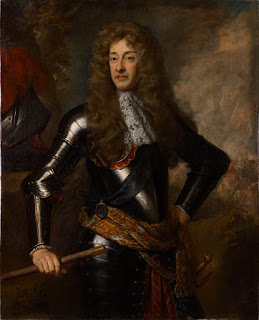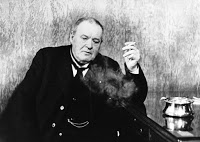

| Online: | |
| Visits: | |
| Stories: |

| Story Views | |
| Now: | |
| Last Hour: | |
| Last 24 Hours: | |
| Total: | |
Hilaire Belloc’s James II: book review
Tuesday, April 11, 2017 21:24
% of readers think this story is Fact. Add your two cents.
 |
| James II |
Hilaire Belloc’s James II appeared in 1928 and it’s typical of its author’s slightly idiosyncratic approach to both history and biography. He has little interest in connected linear narratives or in chronicling the events of his subject’s lifetime. He offers us a series of impressions, each of them calculated to shed as much light as possible on the underlying truth.
The story is also of course a tragedy. James II, the last legitimate King of England, lost his throne in 1688. The tale has been told a hundred times but almost always with a conscious or unconscious anti-Catholic bias, and of course with an anti-Stuart bias (England’s current queen being a representative of the usurping house that ousted the Stuarts).
The Stuarts also suffer from the disadvantage of being the historical losers and history, as the saying goes, is written by the winners. It’s easy to assume that the losing side must have lost because their defeat was inevitable. Unfortunately history is rarely so clear-cut although admittedly the odds were stacked against the Stuart kings.
In approaching this volume it helps of you’ve read some of Belloc’s other books, specifically those dealing with the Reformation. The Glorious Revolution of 1688 was the culmination of the English Reformation. As Belloc is at pains to point out the Reformation in England was largely about money. The issues of church discipline and organisation could in time have been sorted out. The Reformation became permanent because it offered the great landowners the chance to enrich themselves still further, to enrich themselves in fact to an obscene degree, by helping themselves to land stolen from the Church. Some of this land theoretically went to the Crown, but only temporarily. The Crown ended up poorer than it had been prior to the Reformation.
While helping themselves to Church lands the great magnates also took the opportunity of adding even further to their wealth at the expense of the small independent landowners. This was a social revolution, a revolution of the rich against both the poor and the Crown.
The impoverishment of the Crown forced the English kings to rely on Parliament for money, their income being hopelessly inadequate to carry on the government of the realm. Parliament in the seventeenth century had of course nothing whatever to do with democracy. It was an assembly of rich men, selected by themselves, to advance their own interests. If the King had not been reduced to penury then Charles I would have had no need to summon the Parliament that brought about his downfall. Charles II would have had a chance of restoring the royal powers. James II might then have inherited a secure throne.
 |
| Hilaire Belloc (1870-1953) |
Religion of course played a major role in the downfall of James II. His conversion to the Catholic faith gave the enemies of the Throne the weapon they needed. They were able to exploit religious paranoia and bigotry to overthrow the King. Belloc points out that the idea that the Catholic Church could be restored to its position as the national church in the late 17th century was absurd and James had no thought of trying to achieve such an aim. At most he hoped to give Catholicism as chance of survival in the kingdom.
The King’s personality played its part as well. Belloc portrays him as a man of intelligence and application of very strong principles. Alas these useful qualities were combined with others far more harmful. The King was very inflexible and he was a remarkably poor judge of men. James would not compromise his principles even in relatively small things even when it would have been wise to do so, and in the country’s interests as well as his own.
To Belloc the Glorious Revolution was the end of the line for the English monarchy although in fact it had already been grievously weakened. James II may have been England’s last legitimate monarch but Charles I was the last king to exercise anything like genuine royal power. Whether James II ever had any real chance of restoring the fortunes of the Crown is doubtful but he at least was determined to make the attempt.
In Belloc’s view the undermining of the monarchy was a disaster, the King being the only real defence of the common people against the greed and viciousness of the rich. Since the Glorious Revolution British monarchs, apart from not being legitimate, have been mere pawns of the wealthy ruling class.
Belloc can always be relied upon to offer a view of history that is refreshing original, provocative and eccentric. Highly recommended.


